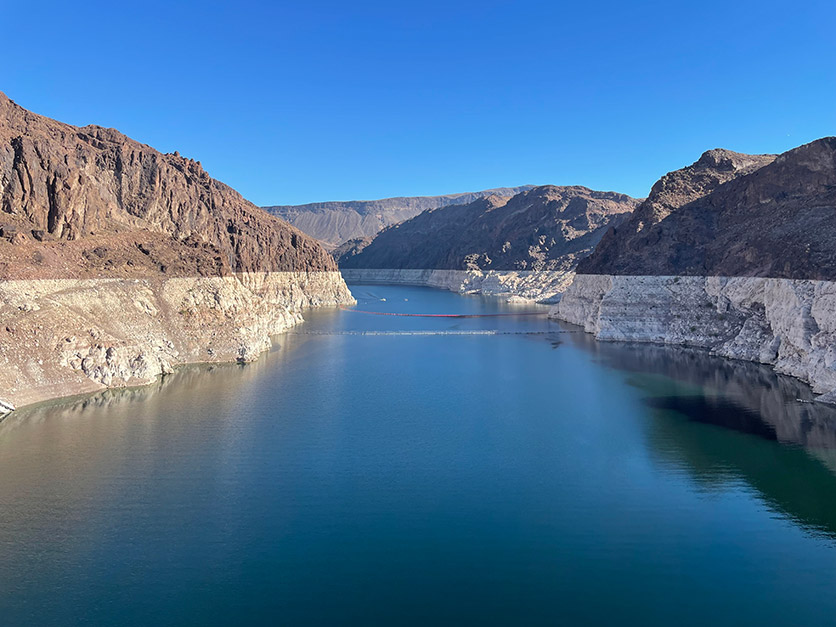Seven states in the Colorado River Basin have emerged from 3 months of negotiations with no agreement for how to conserve between 2 and 4 million acre-feet of water in 2023, leaving that decision in the hands of the Bureau of Reclamation.
Bureau of Reclamation Commissioner Camille Touton, who previously threatened to “act unilaterally” to protect the river’s key reservoirs if the states did not reach a consensus, did not offer any details Tuesday on precisely when and how the agency would exert its authority to make the cuts.
States in the lower basin have already seen 613,000 acre-feet of water slashed under previous agreements and, according to the Bureau of Reclamation, that number will increase by an additional 108,000 acre-feet at the beginning of next year.
States agreed to these incremental cuts in 2007 when they signed Interim Storage Guidelines, which they later revised in 2019. Under a Tier 2 shortage, Arizona would lose 592,000 acre-feet of its yearly allocation, while Mexico would lose 80,000 and Nevada would lose 21,000.
In June, Touton called for states to conserve an additional 2 to 4 million acre-feet to preserve hydroelectric operations on Lake Powell and Lake Mead for next year, giving them until this to present their plans to the agency. She and state water resource officials admitted Tuesday that no consensus had been reached.
And, while Touton said the Bureau of Reclamation would explore the feasibility of altering Glen Canyon Dam to operate under lower elevations, consider releasing more water from the Upper Basin’s reservoirs to prop up Lake Powell, and look into “administrative initiatives” that would maximize urban and agricultural water efficiency in the region, she would not give firm details or a timeline for any of these initiatives.
“We started the process in which we will develop these tools to take action when we see it necessary for the system,” she said. “But I want to be very clear — our relationships in the basin are ironclad and we’re continuing to work with the basin states because we believe that the solution here is one of partnership.”
Sign up for a FREE month of Agri-Pulse news! For the latest on what’s happening in Washington, D.C. and around the country in agriculture, just click here.


